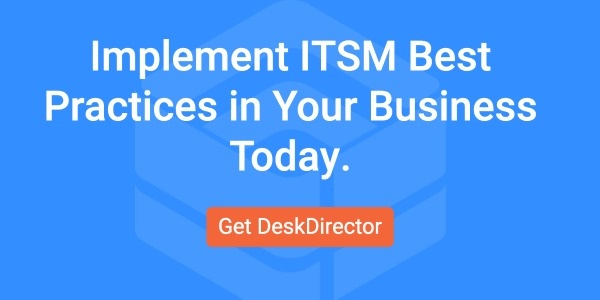Picture this: an employee hits a technical snag, submits a help request, and waits… and waits. Meanwhile, their productivity halts, frustration builds, and IT scrambles to untangle a web of inefficiencies. Multiply this scenario across your entire organization, and the impact is staggering.
An internal IT ticketing system isn't just a help desk—it's the engine that keeps your business running smoothly. But when this system is outdated or inefficient, the ripple effects can hurt productivity, employee satisfaction, and your bottom line.
In this blog, we'll uncover the hidden costs of inefficient internal IT ticketing systems and explore how modern, streamlined solutions can transform IT operations, enhance efficiency, and deliver significant cost savings.

4 Overlooked Costs of an Inefficient Internal IT Ticketing System
1. The Time Costs of an Inefficient Internal IT Ticketing System
Time is money, and inefficient IT ticketing systems waste both.
Delayed Response Times:
When ticket routing is slow or manual processes dominate, IT teams struggle to triage and prioritize issues effectively. A ticket that should take minutes to address can languish in queues, leaving employees waiting and productivity grinding to a halt.
Lost Employee Productivity:
The delay doesn't just impact the IT department—it cascades across the business. Employees stuck waiting for IT resolutions often find themselves unable to perform critical tasks or resort to inefficient workarounds, further disrupting workflows. Over time, these small delays accumulate into significant productivity losses.
2. Financial Drain: The Direct and Indirect Costs
The financial impact of inefficiency isn't always obvious, but it's substantial.
Labor Costs for IT Staff:
Inefficient systems force IT teams to spend excessive time on repetitive manual tasks, such as updating ticket statuses or communicating issue progress. This not only reduces the time available for higher-value activities but may also necessitate hiring more staff to keep up with demand.
Operational Downtime:
Every minute of downtime costs money. Inefficient ticketing systems exacerbate this by slowing the resolution of issues that directly impact operations. Whether it's a network outage or a critical software problem, the inability to act quickly can result in lost revenue and diminished customer satisfaction.
Hidden Costs:
Beyond the obvious expenses, inefficiencies lead to hidden costs, like overtime pay for IT staff working to catch up or the need for additional personnel to handle avoidable workloads. These incremental expenses add up, straining budgets unnecessarily.
3. Impact on Employee Experience and Retention
Your employees' satisfaction with IT services can make or break their experience in the workplace.
Frustration with Delays:
No one likes to wait for solutions, especially when IT issues prevent employees from doing their jobs. Persistent delays foster frustration, eroding morale and engagement over time.
Increased Turnover Risk:
Dissatisfied employees are more likely to leave, and high turnover comes with steep costs: recruiting, onboarding, and training replacements. An inefficient IT ticketing system may seem unrelated to retention, but the frustration it causes can become a significant driver of attrition.
4. Missed Opportunities for Strategic IT
IT teams are at their best when they can focus on driving innovation and solving strategic challenges. Inefficient systems, however, keep them stuck in reactive mode.
Lack of Innovation Time:
When IT teams are buried under a backlog of tickets and bogged down by outdated processes, they lose the bandwidth to pursue initiatives that could improve business outcomes, such as optimizing infrastructure or enhancing cybersecurity.
Scalability Challenges:
As businesses grow, IT demands increase. Outdated systems often can't scale effectively, leaving IT teams ill-equipped to handle the evolving needs of a larger, more complex organization. This hinders long-term growth and adaptability.
The Benefits of Streamlined Internal IT Ticketing Systems
Upgrading to a modern, efficient internal IT ticketing system offers transformative benefits.
- Faster Resolution Times: Streamlined systems leverage automation and intelligent routing to ensure tickets reach the right people quickly, reducing downtime and improving overall response times.
- Cost Savings: Efficient systems cut labor costs, reduce overtime expenses, and minimize operational downtime, delivering substantial savings over time.
- Enhanced Productivity: By automating repetitive tasks and providing robust analytics, modern systems free IT teams to focus on high-value initiatives while enabling proactive issue resolution.
Internal IT Ticketing System: The Conclusion
Inefficient internal IT ticketing systems aren't just a minor inconvenience—they're a silent drain on time, money, and employee satisfaction. From delayed response times to missed opportunities for innovation, the hidden costs add up quickly. The solution? A streamlined, modern system that empowers IT teams and unlocks productivity across the organization.
Ready to transform your IT support processes and reclaim the time and money lost to inefficiency? Book a demo with DeskDirector today and discover how a modern internal IT ticketing system can revolutionize your business operations.
Author's Bio
 Warwick Eade
Warwick Eade
Warwick Eade is the founder of DeskDirector and Lancom Technology, two pioneering companies that have redefined the landscape of IT automation and ticketing systems. As a distinguished member of the Institute of Information Technology Professionals, the IEEE Computer Society, and the NZ Software Association, Warwick brings many decades of transformative leadership and innovation to the technology sector.
Warwick’s groundbreaking journey began with a simple, yet powerful idea sketched on a whiteboard at Lancom, where he envisioned more streamlined and efficient IT systems. This vision materialized into DeskDirector, a revolutionary all-in-one ticketing automation platform that enhances organizational workflows, process management, and client relationships, benefiting everyone from IT to HR.









